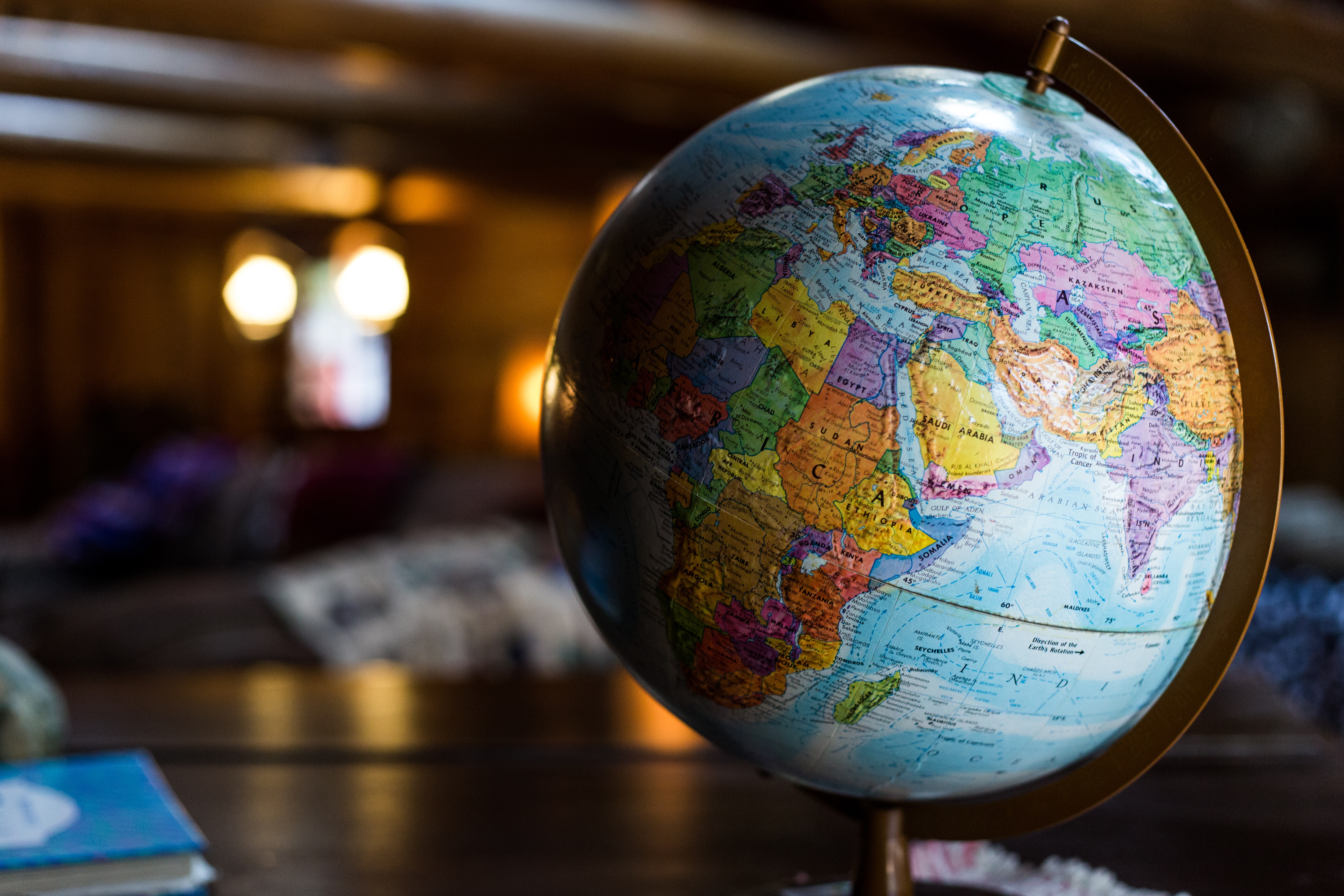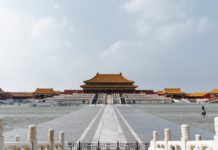Africa’s relationship with China has changed dramatically since the turn of the twenty first century and anyone travelling throughout the continent today can see the results of this flourishing partnership. Modern relations between Africa and China were crystallised through the Forum on China-Africa Cooperation (FOCAC) established in 2000, and its subsequent upgrade into a ‘comprehensive strategic and cooperative partnership’ in the 2015 FOCAC summit in Johannesburg. Under this umbrella partnership, Africa and China are cooperating closely in the areas of trade and investment, infrastructure development, industrialisation, poverty and health, international affairs, cultural exchange, and peace and security.
However, although generally seen as a positive development that will bring about prosperity to the African continent, this new normal can have a number of collateral effects that can strain the relationship if left unaddressed for too long. In particular, growing numbers of Chinese labourers in Africa can lead to increased local tensions and unrest with local populations. Meanwhile, a growing Chinese security contingent may in time lead local governments and population to question China’s true intentions and its long-standing commitment to non-interference. China may need to address these concerns now before they grow stronger.
Africa-China relations today
According to a study by McKinsey, since 2000 Africa-China trade has been growing at a 20% per year, turning China into Africa’s top import partner ahead of Western economies. African exports to China are made principally of natural resources including oil and minerals, while its Chinese imports are primarily cheap manufacturing goods. Meanwhile, China’s direct investments in Africa over the same period have been growing at a staggering 40% average per year, and although they are still below those from the US and the EU it is the trend that matters most. Given the West’s historic ties to the continent, China is unlikely to completely overturn Western investments in the short term, although it will continue to catch up at a steady pace. In places like Ethiopia, however, where China is behind the country’s drive to become a manufacturing hub, China has taken a clear lead.
But where China is making the biggest difference in Africa is in the area of infrastructure financing. Whether it is Senegal, Nigeria, Kenya, Ethiopia, Namibia or Zambia, almost every African nation is financing critical projects with Chinese money. According to McKinsey and the Brookings Institution, more than 10,000 Chinese firms are operating in Africa, working on more than 3,000 critical infrastructure projects financed by Chinese-linked agencies, companies and banks. Some of the most notorious ones include the Addis Ababa-Djibouti and Nairobi-Mombasa railways, Ethiopia’s capital underground (Africa’s first), and the construction of a new megaport at Bagamoyo, Tanzania. Anyone travelling across Africa today can easily spot the signs of this new normal: large Chinese construction signs, Chinese architecture and labourers now populate the landscapes of African countries.
China has also rapidly ramped up its cultural and security engagement with Africa. According to media reports, since 2004 China has gone from having zero Confucius Institutes to having more than 45 across the African continent, aimed at spreading mandarin and Chinese values. This is still well below France’s 180 Alliance Française institutes, but China is now ahead of the US, Britain or Germany. In the area of security, according to the UN China has more than 2,500 security, police and military personnel in peacekeeping missions in places like South Sudan or Mali, while media reports point to an additional 3,500-strong private security contingent across the continent. China now has a military base in Djibouti and reports point to the potential establishment of new bases in other parts of the continent. In 2018, China and Africa held their first Defence and Security Forum in Beijing.
What’s in it for Africa? And for China?
When it comes to choosing between the West and China as project partners, many African nations are increasingly opting for the latter, mainly for two reasons. Firstly, contrary to the World Bank, the IMF or individual Western governments, many of whom are former colonial powers and historical aid donors, China does not attach political or reformist conditions when loaning money. Secondly, in addition to money China also exports skilled labour, a precious commodity which abounds in China but which is less abundant in Africa. A third reason, which builds on the previous point, is the attractiveness of China’s state-led development agenda, something which resonates with a number of African governments including Ethiopia, one of the largest recipients of Chinese support.
But what’s in it for China? According to one interpretation, the rise of China is a global force for good and Chinese interest in Africa is part of a long-term strategy to allow other nations to benefit from China’s own development. The spread of Mandarin through the establishment of Confucius institutes is part of a drive to share Chinese, largely peaceful, Confucian culture and values. Another interpretation argues that China’s interest in Africa is in its vast natural resources and as a fertile land for Chinese exports of goods and labour, as well as a testing ground for Chinese advances in infrastructure and construction. Proponents of this interpretation argue that Africa serves as a conduit to advance China’s strategic objective to become a world hegemon: knowing that many nations will not be able to repay loans, China will impose conditions in exchange for debt relief. These may range from the establishment of military bases to preferential trade deals.
The problem with binary debates is that they do not leave room for more holistic interpretations. The reality may lie somewhere between the two dominant interpretations, and although China’s one-party system is credited for being conducive to more directed policy, Chinese policymakers and leaders are themselves likely to harbour different views. Which of the two interpretations will prevail is therefore less likely to depend on what China’s leaders want than on the context in which Africa-China relations evolve. Either way, China’s increased presence across Africa should not come at the expense of Africans or of other partner nations, and recent research by the Brookings Institution has highlighted the existence of Western-Chinese cooperation in Africa, and the conditions for having more of it in future. However, it is also true that cooperation remains the exception rather than the norm.
Increasing numbers of Chinese labourers may lead to heightened social unrest
At present there is no reason to believe that China’s increased engagement with Africa will slow down, driven by Africa’s booming demographics, a need for better connectivity and physical infrastructure, and China’s own global agenda. This includes China’s Belt and Road Initiative, which extends far and wide to include a number of areas and projects in Africa. But the same conditions which have resulted in China’s success in Africa could derail it in the not-so-distant future. According to the UN, Africa’s population is projected to double in size by 2050, putting an immense pressure on local governments to create additional employment. At present, Chinese companies with operations in Africa employ large numbers of locals, although according to several studies and local hearsay this is more the case in lower positions than in higher managerial positions.
As Africa’s population increases and education and training standards improve, including through formal and informal knowledge and technology transfer platforms, Africans will demand more and better opportunities. If unaddressed, this unbalance could lead to widespread local resentment towards Chinese workers and companies, something which according to media coverage and on-the-ground testimonies is already happening in places like Nigeria, Ethiopia and Zambia. In some places, such resentment can take a social, cultural or religious form, complicating matters further. This is not a distant prospect; as highlighted by The Economist, simmering racial tensions between ‘Chinese’ and ‘blacks’ is commonplace in Namibia and other African nations.
To address this, China may revise its foreign financing policies to ensure they incorporate more balanced employment standards that guarantee a minimum quota in favour of local employees in managerial positions, coupled with fair working conditions. In the absence of such policies, local governments may in time be forced by their own populations to impose local requirements as a pre-condition to renewing existing contracts, adjudicating new contracts, or before entering into new project partnerships with China. As the strong party in the relationship, especially if African governments face difficulty repaying debts, China will have the upper hand in any negotiation. However, a smart foreign policy would try to mitigate this risk before allowing it to grow out of control.
Africans’ perception of China’s intentions could shift
According to a 2014/15 survey by AfroBarometer, of all respondents across the 36 African nations polled in the survey, 63% felt that China was a “somewhat” or “very” positive influence in their country, ranking second as “a development model” (after the US) and as “the greatest influence” (after former colonial powers). Cited amongst the most positive aspects of Chinese engagement with Africa were investments in infrastructure and business development. This is no doubt a good starting base but as the saying goes it is very easy to lose a well-earned reputation. As mentioned above, if simmering racial and sociocultural tensions increased, current positive perceptions of China as a force for good could take a turn for the negative.
One of the key factors that risks denting Africans’ perception of China is the latter’s advances in the security space. The opening of China’s first overseas military base in Djibouti in 2017 caught the attention of many across the continent. In China’s favour is the fact that Djibouti already harbours the US’s only military base in Africa as well as military bases and contingents from France, Italy, or Japan, and that as a ‘peripheral’ small African nation Djibouti plays more of a role in allowing China to project power outwards towards the Gulf of Aden than inwards. However, some US analysts claim that China’s opening of a military base in Djibouti is part of a broader strategy to build a series of concatenated military bases across the Indian Ocean to further Chinese commercial interests.
China denies these claims and usually refers to its new base in Djibouti as a support facility while fencing off criticism by arguing that the ‘String of Pearls’ theory is a US attempt to undermine the attractiveness of the Belt and Road Initiative and of China’s continued growth. African nations and peoples are caught in the middle of this debate and it is not unreasonable to think that perceptions will swing to one side or the other depending on the wider context and China’s ability to continue to contribute to their overall prosperity. If things are conducive to employment, fair and equal opportunities and overall growth, Africans’ perceptions of China will remain rather positive. However, if Chinese engagement fails to secure win-win results, how will Africans react to rumours of a new base in Tanzania or of Chinese troops being stationed in Namibia?
Conclusion
Increased engagement between Africa and China is perhaps one of the most important stories of the twenty first century, and some of the greatest transformations across the African continent are happening thanks to Chinese funds and support. To the extent that this relationship benefits both parties, there is no reason to believe it will slow down. However, evidence suggests that the influx of Chinese labourers and culture brought about by Chinese-backed critical projects is adding pressure to local labour and social structures, with accounts of racial tensions often corroborated by on-the-ground testimonies. If unaddressed, these tensions could escalate and affect Africans’ overall current positive perception of China. In such a scenario, African government and peoples could also start to grow suspicious of China’s military and security activity across the continent.




























